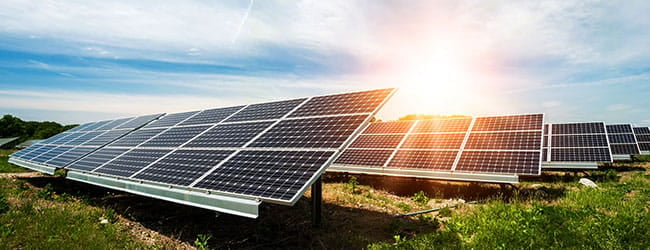Tue, Aug 25, 2020
Opportunities to Reduce Sales/Use Tax Liabilities: Renewable Energy

Our recent state and local tax blog provided an overview of commonly known exemptions and other areas of opportunities to reduce sales and use tax liabilities. In this article, we will focus on sales and use tax opportunities afforded to generators of electricity via renewable sources. Generators of electricity generally qualify as manufacturers.
Renewable energy, often referred to as clean energy, comes from natural sources or processes. The most known renewable energy sources are solar energy and wind energy. The U.S. has experienced explosive growth in clean energy production over the past several years, and this growth is expected to continue in the future. Evidence of this growth includes:
- Production of 40 times more production of solar power than in 2009; enough to power 9 million homes
- Triple the amount of wind energy as in 2009; enough to power 26 million homes
- 361,000 electric vehicles were sold in 2018 compared with zero in 2009, and sales were up 14% in 2019 as compared to the prior year1
- Clean energy investment is expected to hit $2.6 trillion this decade2
With the increasing need to produce energy via renewable sources, federal, state and local governments have encouraged investing in renewable energy; in some cases, require it. As a result, many state governments have created various credits and incentives like income tax credits, property tax exemptions and sales and use tax exemptions. The Database of State Incentives for Renewables & Efficiency (DSIRE) is a comprehensive source of information on government and utility requirements and incentives for renewable energy.
The electricity market has seen an increase in generators of electricity; consequently, state governments have opened the door for them to qualify as manufacturers and thus benefit from sales and use tax exemptions. Many states like California, Georgia, Michigan, New York and Texas have guidance that provide some form of upfront sales and use tax relief. Additionally, these states provide details as to the types of equipment that qualify for an exemption, including where the manufacturing of electricity begins and ends. Texas is a favorable state for generators of electricity as the manufacturing exemption is generally afforded from the renewable energy device (i.e., solar panel or wind turbine) through the collection system and up to and including the substation. Other states like Michigan have gone further in releasing guidance that provides in-depth detail of property eligible for an exemption, which not only includes generation but also exempt and non-exempt apportionment percentages for property used in the transmission and distribution of electricity. On the other hand, many states have explicitly excluded generators of electricity from their definition of manufacturing. States like Illinois, Nebraska, South Dakota and Washington do not provide upfront sales and use tax exemptions; however, they do provide sales and use tax relief via state incentives. For example, Illinois does not consider the generation of electricity to qualify as manufacturing, but through the Department of Commerce and Economic Opportunity (DCEO), a wind farm that qualifies for the High Impact Business (HIB) program is eligible to receive 100% exemption of Retailers Occupation Tax for building materials incorporated into the facility. Nebraska, which also does not consider generators of electricity to be manufacturers, has a state incentive program via the Nebraska Advantage Act. This program effectively provides wind farms 100% recovery of sales and use tax spend for fixed assets capitalized for federal income tax purposes.
In summary, if you generate electricity via renewable sources, it’s more likely than not that opportunities to reduce your sales and use tax liabilities exist, albeit not always through the conventional methods. We recommend you take a deep dive in analyzing not only the sales and use tax statutes in the respective states but also in visiting and discussing your energy projects with the Department of Energy or Department of Economic Opportunity as tax savings often exist for other tax types outside of sales and use taxes.
If you have any questions regarding your specific energy project, do not hesitate to contact one of Duff & Phelps' experienced Sales and Use Tax professionals for guidance. We encourage all companies that need assistance to contact us.
Sources
1.https://environmentamerica.org/feature/ame/renewables-rise
2.https://www.bloomberg.com/news/articles/2019-09-05/clean-energy-investment-is-set-to-hit-2-6-trillion-this-decade
Valuation Advisory Services
Our valuation experts provide valuation services for financial reporting, tax, investment and risk management purposes.
Tax Services
Built upon the foundation of its renowned valuation business, Kroll's Tax Service practice follows a detailed and responsive approach to capturing value for clients.
Sales and Use Tax Services
Kroll provides a comprehensive suite of sales and use tax services to assist companies in complying with its sales and use tax obligations.

